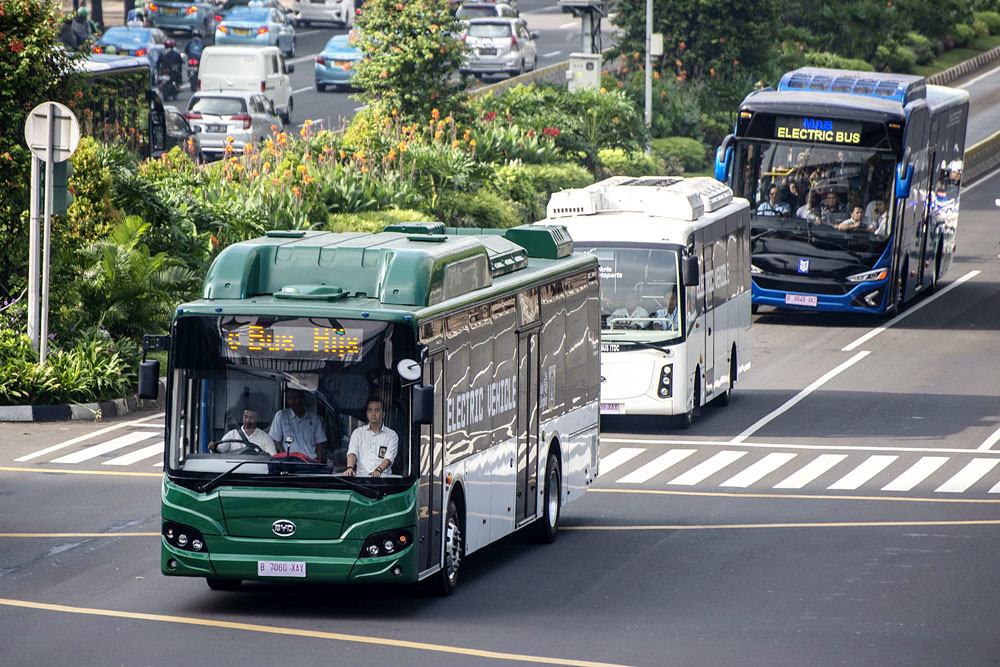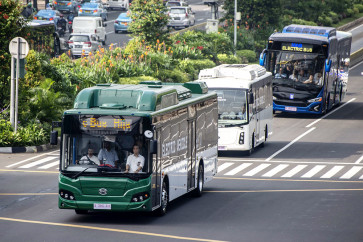Popular Reads
Top Results
Can't find what you're looking for?
View all search resultsPopular Reads
Top Results
Can't find what you're looking for?
View all search resultsHow electric vehicles can win race
Priority lanes and free parking for electric vehicles may be needed to drive demand in Indonesia, and help its residents breathe clean air once again, just like they did 20 years ago. #opinion
Change text size
Gift Premium Articles
to Anyone
J
akarta has struggled with overpopulation, pollution and traffic gridlock for many years. This situation prompted President Joko “Jokowi” Widodo to decide recently on a plan to move the nation’s capital out of Indonesia’s main island, Java. The idea has been out there for decades, though previous leaders have been unable to accomplish the ambitious plan.
Aside this debate of where the capital would be located, Jakarta still has its charm and will remain one of the primary driving forces for Indonesian economic activity. Indonesia has always attracted millions of tourists each year, and it is on its way to fulfilling its ambition of being an economic power.
However, the air quality of major cities like Jakarta, Southeast Asia’s most populous city, has worsened with a sharp rise in the number of fossil fuel-powered vehicles.
A recent study by the University of Indonesia (UI) found that 58 percent of illnesses among the country’s urban populace were linked to air pollution. With vehicle ownership estimated to grow more than 40 percent by 2040, the need for cleaner vehicles is urgent.
President Jokowi’s government has come up with a national road map for the country’s automotive industry, and it looks highly electric.
Indonesia has the second-largest car production hub in Southeast Asia after Thailand, and the government plans to ban sales of all gasoline and diesel cars by 2040, and thus, targets at least 20 percent of all new vehicles registered in the next six years to be electric. With annual car sales of about 1 million, this ambitious target would translate to about 400,000 cars and million motorcycles running on electricity.
Indonesia has also announced plans to introduce a program that will offer tax cuts to electric vehicle (EV) battery producers and automakers, as well as preferential tariff agreements with other countries with growing demand for electric vehicles. Indonesia also plans to utilize its rich supply of nickel laterite ore, used in lithium batteries that power EVs, to become a global hub for producing and exporting EVs in Asia and reduce its reliance on fossil fuel imports.


















